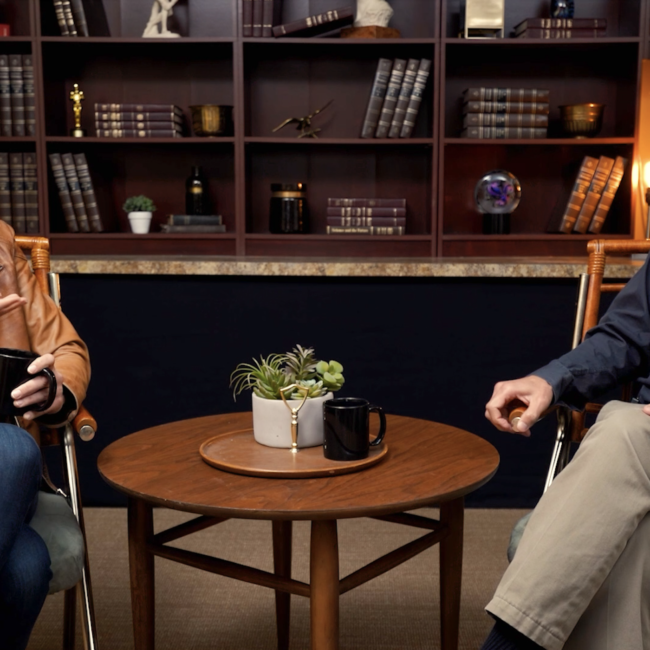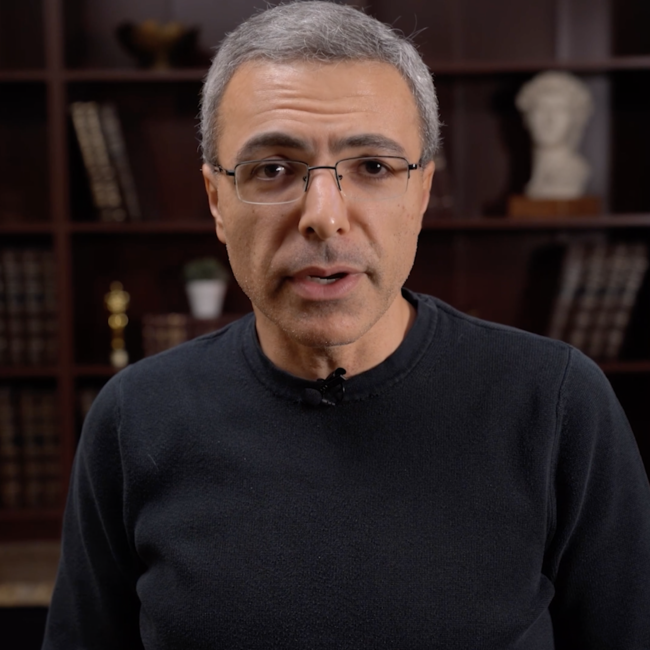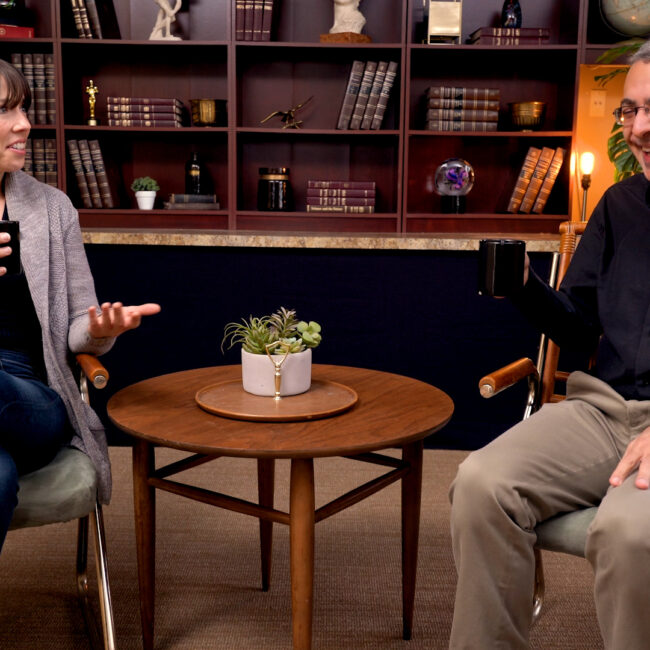
Season 1: Episode 1 – Medical School Part I: Hurricane Katrina & Backroom Politics
About this Podcast:
Dear Healthcare, It’s You was born from necessity. We’re here to change the conversation about the healthcare industry. Join Dr. Elisha Yaghmai and Jo O’Hanlon as they shed light on inefficiencies and how we can address them.
We can only fix what we know. The first step in making lasting change is understanding the current state of the healthcare industry. We want to highlight the opportunities to help bring about progress.
Episode Transcript:
Dear Healthcare It’s You: Episode 1
Dr. Elisha Yaghmai
So, it was like - a commitment was made and then the commitment was withdrawn and the reason for that it wasn't – it had nothing to do with the qualifications of the individual, how good they were, none of that. It was entirely politics. It was all politics. And so, but I think my point in telling you that story is that that was the first time that in a very unvarnished fashion. We had a glimpse of what the whole thing was really about.Dr. Elisha Yaghmai
All right.Jo O’Hanlon
Dr. Yaghmai, thank you for being here today. Do you prefer to be called Dr. Yaghmai, Elisha Yaghmai?Dr. Elisha Yaghmai
I go by Elisha. Yeah.Jo O’Hanlon
Elisha? Okay. I'm Jo O’Hanlon, I'm with your marketing company and this is our first podcast that we're doing together of this nature. So, tell me about why we're here today, what we're doing.Dr. Elisha Yaghmai
The point of the podcast is to start to talk about healthcare issues that are of concern to not just our patient population, but really the entire country. So, there's a lot that has happened in health care in the last 10 years, and that was built on the legacy of things that did and mostly did not happen over the previous several decades. But I think most people in the country are aware of the fact that the prices of healthcare keep spiraling up. And then at the same time, what is being delivered to individual patients is often spiraling down.Jo O’Hanlon
Right.Dr. Elisha Yaghmai
We've also just come out of a massive pandemic that was very destructive to the system in ways that aren't always obvious to people that are outside of the system. So there's just layers and layers of issues at this point that need to be discussed that in many cases are not being discussed even within the sort of public sphere or the kind of general media. When we're talking about healthcare. The issues that are deemed to be important are often not the ones that are really the most important when you're looking at how do we fundamentally improve this whole system of delivery.Jo O’Hanlon
There were probably already stressors and already cracks in the system and this just super exacerbated it. Does that feel right?Dr. Elisha Yaghmai
Yeah, 100%. The classic example would be - just use - here you can pick almost anywhere in the system and find issues to discuss, but one of the things that COVID did was result in huge staff losses across the entire country. I would say that probably the medium-sized smaller communities have felt this the worst because they already had a smaller population base to begin with, right? So, when a bunch of your nurses quit there, it's not like there's, you know, a thousand more that are walking through the door, right? Because you're in a 20 million person city, right?Jo O’Hanlon
Yeah.Dr. Elisha Yaghmai
You're in a city of a few hundred thousand people. So, but when the pandemic broke out, for one, there was a general lack of preparation. But for two, you had these widely desperate responses based on how wealthy the hospital system was, how wealthy the community was, what kind of protective equipment they could even supply. There were hospitals that had barely any, or were having the nurses buy their own to come in and work with a life-threatening illness.Jo O’Hanlon
Right, yeah, yeah, yeah. Oh, gosh, yeah.Dr. Elisha Yaghmai
Nurses were being asked to work 12-hour shifts. And then, of course, some of the nurses were getting sick, right? All of these things are happening. Patients are dying at a much, much higher rate than we're usually used to seeing within almost any type of condition, right?Jo O’Hanlon
Yeah.Dr. Elisha Yaghmai
All of that stress, coming together on the legacy of - we already have all of these problems and grievances that had been boiling for years over the surface, so a lot of nurses just left and then what you’re left with is a hospital that has beds but no staff, but then you have patients who need the beds but can't even get in.Jo O’Hanlon
They can’t go to them because there's no one to staff the bed. So, let's back up to before the pandemic. What I know you from is Free State Healthcare Clinic here in Wichita. And so I know you only a bit so far, but I have heard your heart in terms of this being part of your driving motivation in this clinic is that there are, this underlying factor that there are flaws in our healthcare system. The big system, and that you're trying to find creative solutions to alleviate some of those pain points and to help the population actually have access that is affordable, is helpful, and is not an overarching strong arm of you need this healthcare piece and stuff. So, let's talk about your journey. How did you start to get into medicine and have you always felt this way, or was this something that kind of happened as you went through your medical journey and you started to see those flaws.Dr. Elisha Yaghmai
After college, I actually went I went to live overseas and do some teaching.Jo O’Hanlon
Oh, okay. Where was that?Dr. Elisha Yaghmai
So, I was in the Ivory Coast in West Africa.Jo O’Hanlon
Okay, nice.Dr. Elisha Yaghmai
So, I went there, and it was a really, really fascinating experience. Very Enjoyable. I learned an enormous amount. I had an interest, even in college, in International Development and healthcare and these kind of things.Jo O’Hanlon
Yeah.Dr. Elisha Yaghmai
So, I went and started working there and then I - one of the things that occurred to me was - Okay, I really think I'd like to come back and work in places like this, in countries like this,Dr. Elisha Yaghmai
In this kind of environment, but the point was that you know there people there that clearly was you know there was poverty there were other types of issues and so I had a strong interest in International Health and I thought - Okay, if I'm going to come into this environment and work, I think I need some kind of practical hands-on skill. Right? I don't just want to show up and say: Hey, you know what I can push paper around and write paragraphs. I need something that I could actually do to help people in a in a very practical way, and so I thought – Okay, well you know what I'd already been thinking about medicine that was kind of the way that I was tracking the whole time.Jo O’Hanlon
Yeah.Dr. Elisha Yaghmai
Maybe medicine is the right answer here. Right? Because then I then I when I go to a village, right, if someone is sick, I can actually help them. So, that reinforced the desire.Jo O’Hanlon
So, then you came back and you started med school.Dr. Elisha Yaghmai
Right.Jo O’Hanlon
Where did you go to med school?Dr. Elisha Yaghmai
I started off at Tulane.Jo O’Hanlon
Where’s that?Dr. Elisha Yaghmai
So, it's in New OrleansJo O’Hanlon
Oh, okay. Nice.Dr. Elisha Yaghmai
So, Tulane had a Tropical Medicine program. So, I was completely - At that point, I was completely - I'm going to get my medical degree and then I'm gone. I'm going to somewhere overseas.Jo O’Hanlon
Did you say Tropical Medicine?Dr. Elisha Yaghmai
Tropical Medicine, yeah. They had – so, there’s regular. So there's medicine, medicine - which is your typical MD program which was what I was doing, but then they also had a tropical medicine program that you could do as a supplemental degree. I should say supplemental certificate program on top of that where they train you basically in tropical diseases meaning diseases that are most common around the Equator.Jo O’Hanlon
So, then where did you go from af-, like you graduated, where did you do your residency?Dr. Elisha Yaghmai
Oh, no I didn't. I didn't.Jo O’Hanlon
Oh, you didn’t? Okay!Dr. Elisha Yaghmai
So, no so the very first disruption was..Jo O’Hanlon
Alright!Dr. Elisha Yaghmai
Midway through my medical education - two years into it, Hurricane Katrina hit. Hit New Orleans.Jo O’Hanlon
Oh, Wow. Okay, that was back then!Dr. Elisha Yaghmai
So, at least in my cohort most of us weren't there because we - so that - the hurricane hit on the weekend. So, we at that time had just started what we call clinical clerkships which, it's changing a little bit over time, but it starts in your third year.Jo O’Hanlon
Yeah.Dr. Elisha Yaghmai
We had just finished a clerkship. It was on the weekend before we switched to a new one.Jo O’Hanlon
Okay.Dr. Elisha Yaghmai
So, many of us had left town.Jo O’Hanlon
Wow.Dr. Elisha Yaghmai
Just fortuitously. Yeah, and you know and we didn't, New Orleans at that time, hurricanes were a thing that happened, but…Jo O’Hanlon
Not lot that.Dr. Elisha Yaghmai
Yeah. Well, I mean they occasionally had some bad ones, but most of the time, a hurricane was a thing that would sort of blow over, nothing really major would happen. So, I think it's safe to say at least from the perspective of those of us that hadn't lived there for a long, long time we weren't too worried about it.Jo O’Hanlon
Right.Dr. Elisha Yaghmai
And even to a point that even when the when the hurricane was hitting, you know, I was in Texas at that point. I was trying to get back! I was, you know because they had canceled the flights, so I was like, okay, well, let me try to rent a car because I need to get back on Monday.Jo O’Hanlon
Right, yeah, right.Dr. Elisha Yaghmai
and be there.Jo O’Hanlon
No idea what's happening.Dr. Elisha Yaghmai
No idea, right? And then woke up to find you know the whole city had flooded and all the tragedy that went on after that.Jo O’Hanlon
Yeah, wow.Dr. Elisha Yaghmai
Essentially for a while the school was completely shut down.Jo O’Hanlon
Yeah.Dr. Elisha Yaghmai
And what we learned at that point was that if there was a contingency plan, it was not followed. But there appeared to have never been a contingency plan, and what was interesting about that was that, when you when you move to New Orleans one of the very first things you learned - at least in the years that I moved there was that if there ever is a really, really bad hurricane this city is going to flood.Jo O’Hanlon
Like everybody just accepted that.Dr. Elisha Yaghmai
Everyone kind of knew that that would happen, right? But what didn't seem to have happened was anyone actually planned for what if that actually happens. So, for example the report that we received I never verified this independently was that all of our email servers were in the basement of the medical school, right? Which flooded. So, all of a sudden, we had no email. We had no email we had no way to communicate with anybody, right? So, the medical students set up basically a side chat.Jo O’Hanlon
So, when was this, 2006?Dr. Elisha Yaghmai
This was 2005.Jo O’Hanlon
2005. Okay, yeah, yeah.Dr. Elisha Yaghmai
So, there was no mechanism. So, the med students set up this side sidebar thing and then that began a multi-week sort of saga where the medical school was just trying to sort of pick up, just reorganize, kind of get things put back together. Obviously, people had lost homes, I mean there's just all of this chaos and destruction happening. But from the medical student perspective, you know, we were just sort of dangling out there with no real guidance. So, what we - our experience was that the institution took care of the pre-clinical people faster. They took care of the undergraduates at the University faster, but the medical students, and I think to some degree the law students, if my memory serves, were kind of left a little bit later. Probably because it was harder to arrange, but we were just, and when I mean dangling, I mean we didn’t have anything. We didn’t have financial aid at that point because we hadn't gotten, the money had not been processed, right?Jo O’Hanlon
Because everything is just shut downDr. Elisha Yaghmai
Oh, 100%. Yeah. So, we were out of we're out of money. We often didn't have anywhere to live depending on what the situation was…Jo O’Hanlon
I was going to say, did your home get…Dr. Elisha Yaghmai
Well, my home, my personal, my apartment, was high, it was in an apartment building, I was high enough that it was, that it didn't get damaged directly, but I couldn't get to it. I couldn't, I'd have to sail to it, right? That was the actual reality. So, all my things were there.Jo O’Hanlon
Yeah.Dr. Elisha Yaghmai
And so that was, you know, so it just began this really high stress period.Jo O’Hanlon
What a way to start your dream. Like, I mean that's really interesting that that was part of your piece, so…Dr. Elisha Yaghmai
Well, it wasn't just that. It was actually, over time; it became relatively adversarial. So, the students felt abandoned, and I think in retrospect thinking back now being older.Jo O’Hanlon
Yeah.Dr. Elisha Yaghmai
I think to some degree we lacked a little bit of empathy in terms of thinking about, hey these Medical School Deans, right, these are people.Jo O’Hanlon
All the pieces that they’re trying to get back in line and figure out.Dr. Elisha Yaghmai
They have families and lives and things they're trying to do, right? But at that time, it just felt like, basically we've been kind of hung out here, you all aren't helping us, you're not doing anything for us, you don't even have a plan for any of this.Jo O’Hanlon
You’re just stuck in limbo.Dr. Elisha Yaghmai
It's just absolute chaos. So, that, over time the interaction I think just became increasingly angry and adversarial between the faculty, and the students, and the school and everything else like that. So, in that context, several of us left. So, that's actually what happened, we applied for transfer, and ended up transferring out.Jo O’Hanlon
Was that, like was there anything in place that helped that be more seamless than normal? Because of the circumstance?Dr. Elisha Yaghmai
No, it was pretty it was pretty difficult, I mean essentially you had to find any. So, one of the things that happened was that several students wanted to transfer out to continue their education. There were some back-room politics that went on to try to prevent that to a certain degree. So, what happened was, a few people had the idea kind of came out.Jo O’Hanlon
Yeah.Dr. Elisha Yaghmai
Moved on it quickly as that began to percolate through the population of students more people began to realize that was possible, more people began to try.Jo O’Hanlon
Do that, yeah.Dr. Elisha Yaghmai
And that is when, that's when the gloves came off to a large degree in terms ofJo O’Hanlon
The aggressiveness.Dr. Elisha Yaghmai
The aggressiveness because the school is looking at this and saying we're about to lose all our students and you know, again, I won't comment on what their motivation was, but they could see that they wereJo O’Hanlon
Stress in both directions.Dr. Elisha Yaghmai
They were about to lose the students and so then they began to get much more aggressive about retaining the students. So, people for example might be accepted to transfer somewhere and then and then all of a sudden receive word that your transfer has been rescinded.Jo O’Hanlon
Yeah.Dr. Elisha Yaghmai
You know because you know they called usJo O’Hanlon
Because the school that you're coming from was resending it, you’re saying.Dr. Elisha Yaghmai
No, no, no because the school the school you're going to. The school you're coming from had no right to interfere with your transfer, but the back-room politics were. If this person calls that person. You know these two people are colleagues they're going to have to work with each other in the future. So, from their perspective, right, if you stick a knife in them now, right? Then later there's not going to be a good relationship. So, what ended up happening was for example there was one student that had been accepted to transfer somewhere a little bit further east in the in the Southeast. He was ready to start. He got a call the day before he was supposed to start his new place saying, “I’m sorry your place has been rescinded you're going to need to move to Houston.Jo O’Hanlon
The day before?Dr. Elisha Yaghmai
The day before, yeah. 100% He was the only person that end up in that type of situation. So, it was like a commitment was made and then the commit withdrawn and the reason for it wasn't had nothing to do with the qualifications of the individual how good they were none of that. It was it was entirely political. It was all politics. I think my point in telling you that story is that that was the first time that in very unvarnished fashion we had a glimpse of what the whole thing was really about.Jo O’Hanlon
Right.Dr. Elisha Yaghmai
Because you think about it, I always thought about it two ways. On the one hand, everybody involved in this was a human.Jo O’Hanlon
Yeah.Dr. Elisha Yaghmai
This was a huge, massive natural disaster it was a tragedy.Jo O’Hanlon
Yeah.Dr. Elisha Yaghmai
All kinds of terrible things happened.Jo O’Hanlon
Yeah.Dr. Elisha Yaghmai
The fact that there was chaos and uncertainty, in retrospect, not surprising. That I think that there was a lack of empathy, I think, on the part of us as the students. For the fact that the people that were they were sort of punitively in chargeJo O’Hanlon
Probably in both directions, honestly.Dr. Elisha Yaghmai
But I think it extended in both ways.Jo O’Hanlon
Yeah.Dr. Elisha Yaghmai
And I would say, when it really got tough, right? It came down to things like we're about to lose a bunch of tuition paying people. Then the teeth really came out.Jo O’Hanlon
Right.Dr. Elisha Yaghmai
That was kind of what we experienced, right? Then the teeth really came out and we saw things being done. I mean, we still have I think the, you know the emails various other things went on. You know, then things were done that really number one were not right and number two were not in the best interest of the student. If that makes sense? As a student.Jo O’Hanlon
Yeah. Right.Dr. Elisha Yaghmai
So, it was. We're going to forcibly retain you here even though we don't really have a good structure to receive you.Jo O’Hanlon
Right. Like we can't do anything with you right now, you're still stuck in limboDr. Elisha Yaghmai
Exactly. That’s correct. Yes.Jo O’Hanlon
But, we can’t. We don’t want you to go.Dr. Elisha Yaghmai
Right. Yes. We’re going to move you to. So what ended up happening was they did a time share thing with Baylor College of Medicine, right, but what was happening was the Tulane people were add-ons, right? They were a third wheel everywhere they went because the Baylor had a structure set up for their own student population not all these new people. So you're bringing these new people in to be excess weight in a place where they, number one they're not exactly ready for them, number two they're not exactly welcome.Jo O’Hanlon
Yeah.Dr. Elisha Yaghmai
Right? umJo O’Hanlon
So, Baylor is where you ended up going?Dr. Elisha Yaghmai
No, no that's not where I went. That's not where I went. Yeah. But this is where they, many of the others went elsewhere. Some, like I said did transfer out to other places, but a lot of them went there. And then and then when they even when they brought them back for their fourth year clerkships, right? New Orleans was still decimated. So, there were, you know could the hospitals were dysfunctional there was a lot, there was a lack of logistics and resources, they didn't always have the patient numbers, they didn't have the logistical support.Jo O’Hanlon
Right.Dr. Elisha Yaghmai
You know, so there, so people were really in a in a difficult place.Jo O’Hanlon
Yeah.Dr. Elisha Yaghmai
In the middle of a medical education which itself is already difficult.Jo O’Hanlon
Right.Dr. Elisha Yaghmai
All of this, here again I wasn't present at the you know the administrative meetings where these decisions were being made, but from the perspective of a student all of this seemed to be driven by student retention, tuition retention, type issues, right? And that is what, I think that was probably the first event to leave a sour taste in terms of what are we doing here and why are we doing it.Jo O’Hanlon
Yeah, well and we're about out of time, but so it's interesting start of your journey where you got jaded before you were even a doctor.Dr. Elisha Yaghmai
Yes.Jo O’Hanlon
But, you did become a doctor.Dr. Elisha Yaghmai
I did yeahJo O’Hanlon
And so, I mean I think that that's probably where we'll pick up next time.Dr. Elisha Yaghmai
Fair Enough.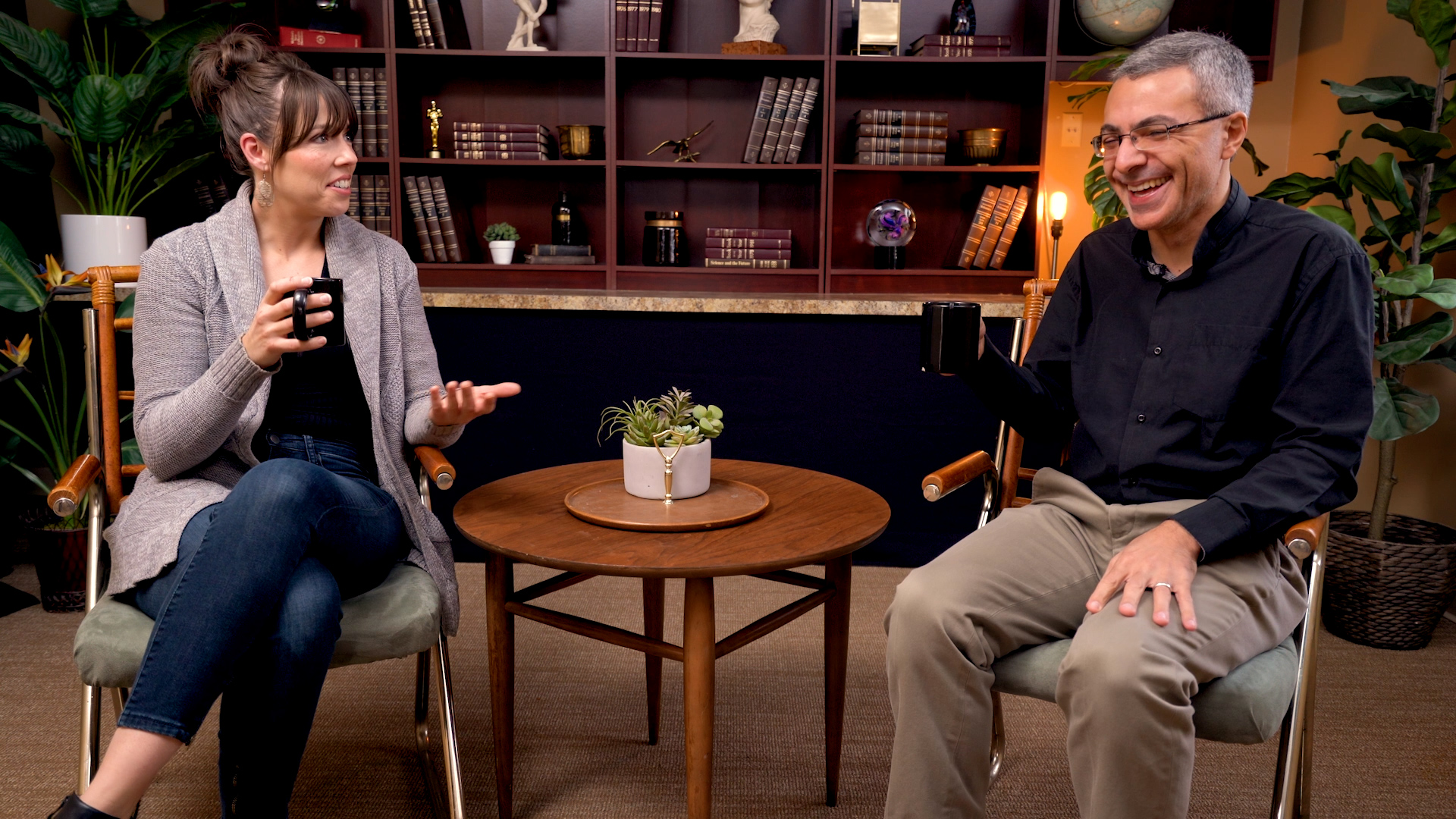
Meet your hosts:
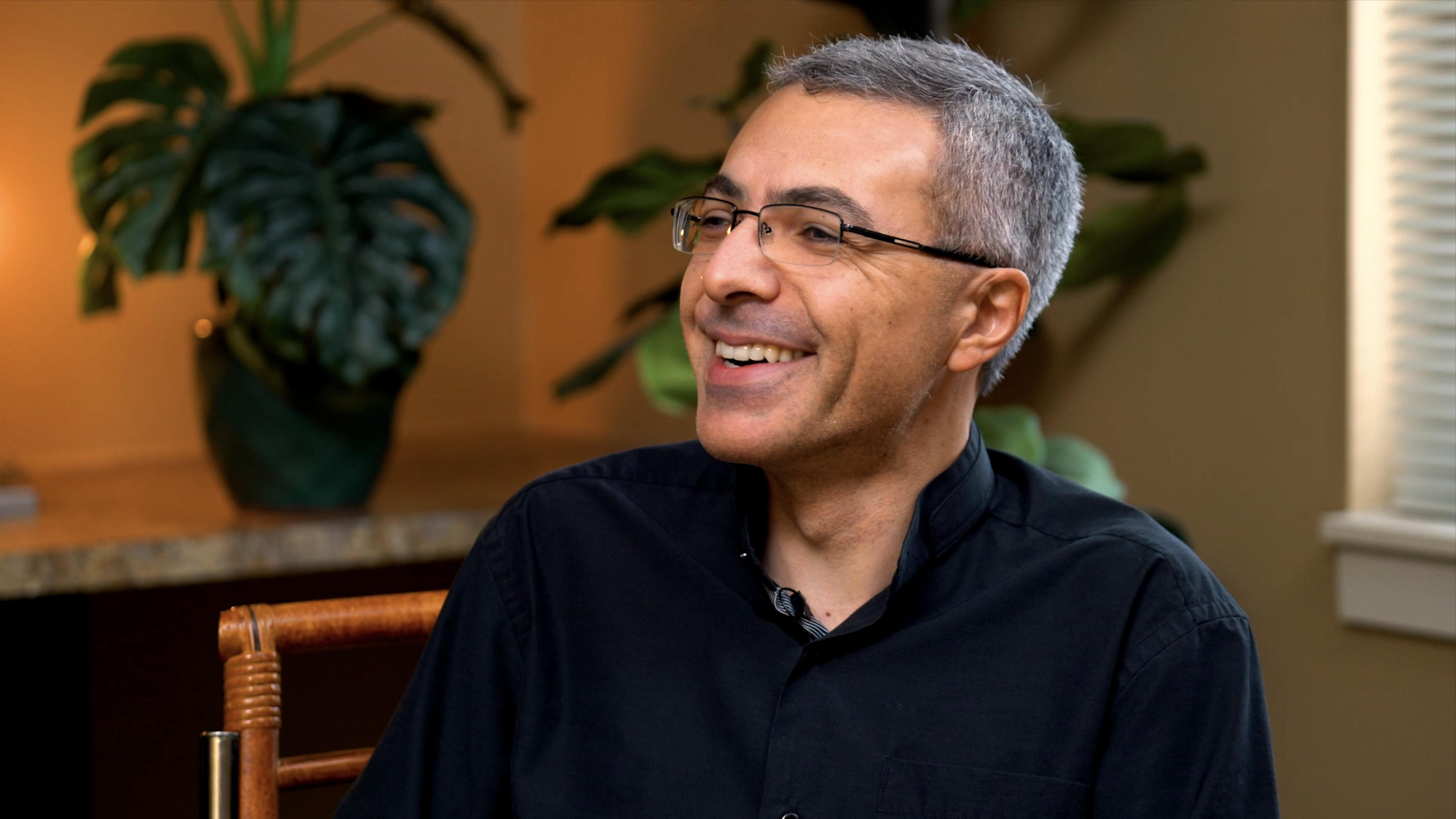
Dr. Elisha Yaghmai
Host
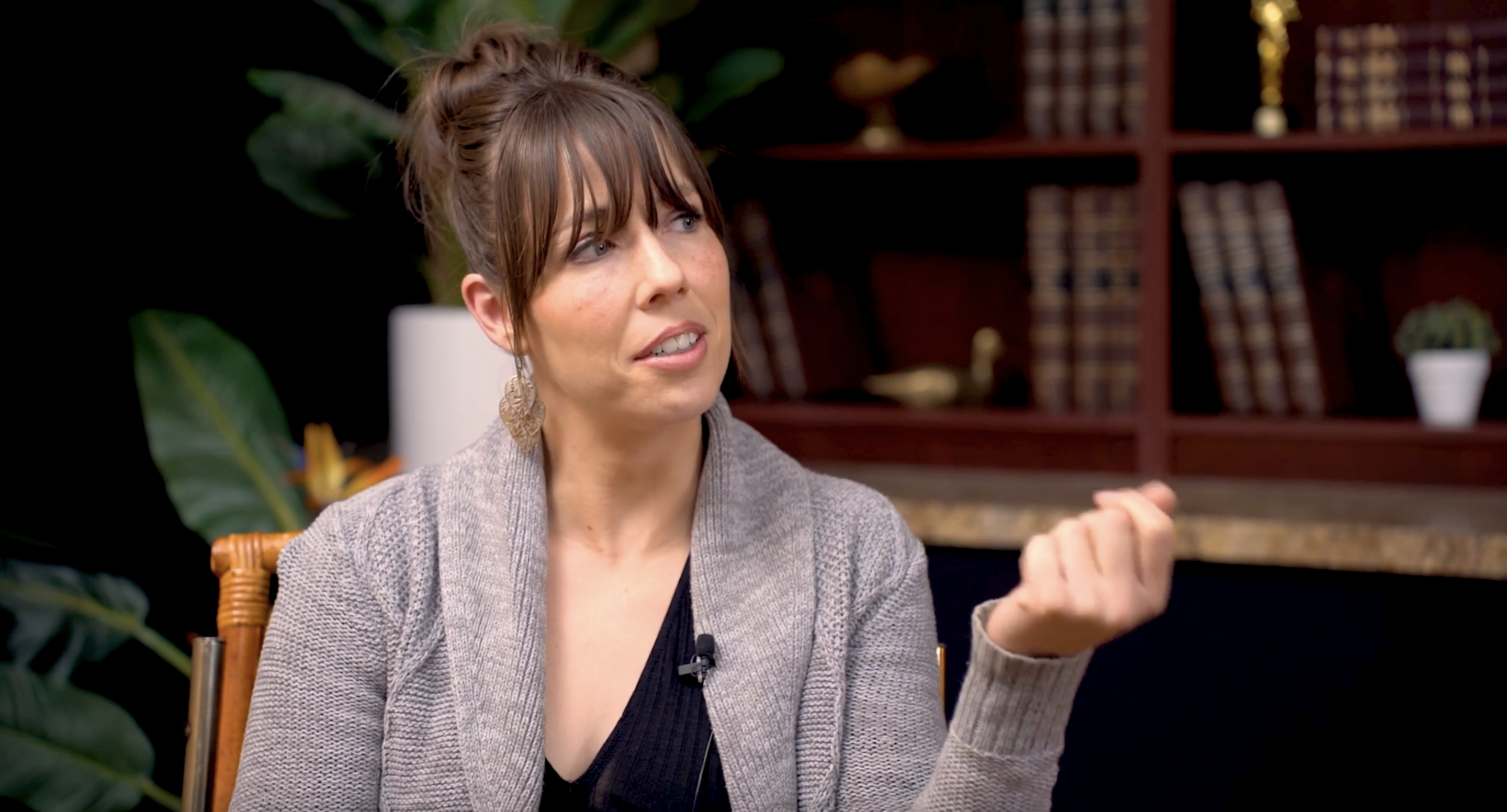
Jo O’Hanlon
Host



